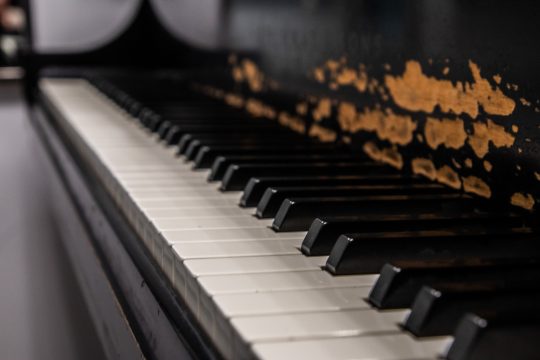The opinions expressed in The Lawrentian are those of the students, faculty and community members who wrote them. The Lawrentian does not endorse any opinions piece except for the staff editorial, which represents a majority of the editorial board. The Lawrentian welcomes everyone to submit their own opinions. For the full editorial policy and parameters for submitting articles, please refer to the About section.
After my high school’s end-of-year auditions as a junior, I was offered a spot in three separate choirs and a higher-level orchestra. I had recently finished all of my graduation requirements, leaving my schedule wide open, and decided to accept all four offers. I dove into my musical studies, knowing that I would be unable to continue them in college. After all, I would have to put my scientific and legal studies, my career, ahead of my music.
The summer before I came to Lawrence as a first-year, I dreamed of auditioning to become a vocal performance major and partaking in the heavily advertised double degree program. I couldn’t justify the money and the time required, so I figured I would never be a part of the Conservatory. That is, until the school announced the new-and-improved B.A. in Music — an open-ended degree that promised a chance at the type of musicianship I had given up on upon graduating high school. I was ecstatic and declared it as my second major the day I found out it existed.
Walking into the Conservatory for my first music class, I couldn’t help feeling a bit like a fraud. I was just as much a musician as everyone else — surely these feelings were merely my mind playing tricks on me. A few weeks went by, and, finding no horribly large gap in my knowledge compared to my classmates, I convinced myself that I belonged there. When I told people that I was here for my B.A. in Music, however, things changed. Suddenly, I was just someone who “wasn’t classically trained,” who “doesn’t know what they’re talking about,” who “isn’t serious about music” and just “sings for fun.” I had just as much experience as everyone else, I was in the same ensembles and classes as everyone else, I was just as dedicated to my musical studies as everyone else, so why was I suddenly “not a real Con student”? The answer is one I have not-so-affectionately dubbed the Con Problem, and it goes far beyond me or the B.A. Music program.
Ask any Conservatory student and we can tell you about all the times that we’ve been scoffed at for wanting to study music. We’ve been told over and over to find a different, more “stable,” more “academic” path. We’ve been told to think of our careers; that there aren’t any real jobs in music. The idea of being a Conservatory student is met with hostility and mockery. We will get no praise or prestige from outside of the Con, so we must create it within.
What divisions could be so great among the Conservatory population that we could deem people of higher or lesser status? If the conversations I’ve heard are any indication, quite a few. “She’s only in one ensemble, what does she do with all her free time? … Oh him, I only see him in the practice rooms twice a week, he must suck. … Well they’re a vocalist; you can get away with having no real technique if you’re just a singer. … He only hangs out with basses, that’s so weird. … She said her favorite composer is Vivaldi; tell me you know nothing about classical music without telling me you know nothing about classical music. … Yeah, well, they’re one of those jazz musicians or whatever they call themselves, you know they can’t play real classical stuff. … He said he’s too busy to practice, and I’m like, ‘The con closes at 1am, that’s not an excuse.’ He definitely isn’t serious about music.”
There’s always something to critique, always something to make someone lesser; there has to be if you want to raise your own reputation as a musician above everyone else’s. Music is subjective; you can play the “correct” notes, but that doesn’t automatically make you more of a musician, so we resort to cliques, gossiping and other forms of needless social division to ensure that we have some sort of objective system to rank ourselves.
It’s true that some of us get As and some of us get Cs, some of us are only in one ensemble and some of us are in three, some of us like jazz and some of us like classical and some of us like pop, but how can you take these small, mismatched pieces and pretend they create some sort of tapestry that shows “seriousness”? And really, why does seriousness even matter? We’re all here, performance majors and B.M.A. students and B.A. Music students alike, because we love music. We get enough flak from everyone else; why can’t our love of music be enough?

